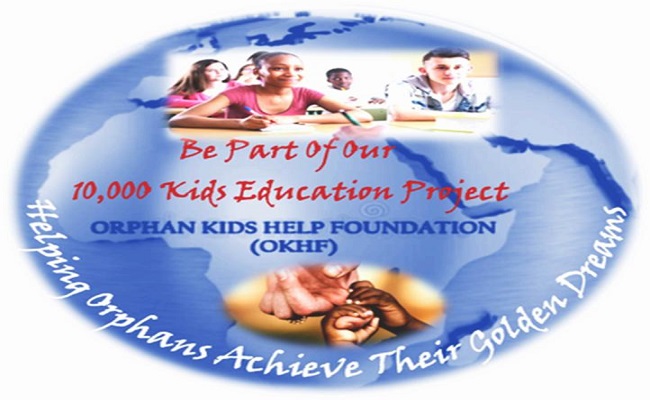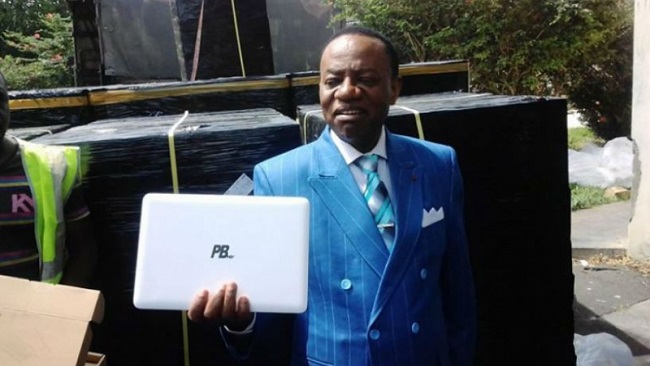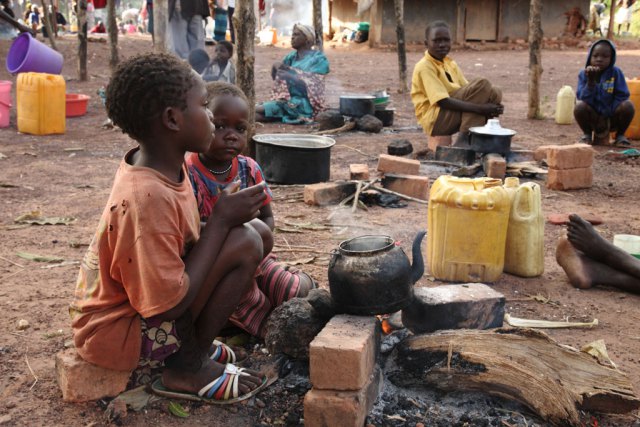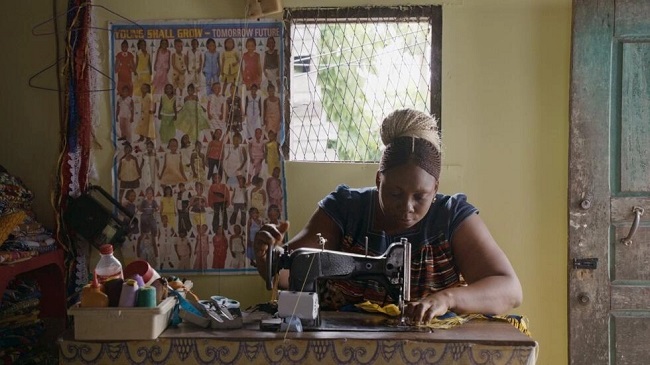22, June 2023
Orphan Kids Help Foundation to fund annual scholarships to 100 secondary school students 0
As part of its 10000 Kids Education Project, the board of directors of the Orphan Kids Help Foundation has announced plans to provide annual scholarships to poor and needy secondary school students in the Republic of Cameroon.
Cameroon Concord News understands the scholarships will pay for 100 school students to study science, technology and global health.
A statement released by the Orphan Kids Help Foundation revealed that the students will be given enough money to cover the costs of tuition and accommodation throughout the period of their studies.
The money will come from the Orphan Kids Help Foundation that has for the past thirteen years provided resources to orphanages in Africa enabling children to sustain their physical, emotional, and spiritual needs.
The scholarships are expected to be formally announced in Cameroon next week by Dr. Ngasu Betek Etengeneng– a senior Lecturer at the University of Douala. Dr. Ngasu has also been tasked to actively recruit qualified students and to make sure that all candidates must be orphans or poor and needy individuals. In addition, the students must be of good moral and academic standing and above all, must be of Cameroonian nationality.
Orphan Kids Help Foundation is known in Cameroon and beyond as one of the philanthropic foundations based in the United States of America supporting orphans all over Africa. Some of the orphanages that have benefitted from the Orphan Kids Help Foundation in Africa include Love kids orphanage (Ghana), Little Saints Orphanage (Nigeria), Footprints Orphanage (Kenya), Mission of Hope Orphanage (Uganda), Hoptec Orphanage (Cameroon), Wellington Orphanage (Sierra Leone), Rainbow Orphanage (Cameroon), Amity Social Assistance Family (Cameroon) and St. Arnile Orphanage in Cameroon.
The donation to fund the scholarships in Cameroon will be the largest given by Orphan Kids Help Foundation for any single cause.
By Soter Tarh Agbaw-Ebai with files from our US Bureau



























24, June 2023
Yaoundé moves to protect children Online as exploitation, abuse worsen 0
Last Tuesday, Cameroonian parliamentarians and META experts met to proffer ways to protect children from cyberbullying. This was spurred by several cases of minors in the country being exposed to harm on social media.
The most recent case involves the posting of a video recording of two young girls saying they were raped by a police officer in Beau, in the southwestern region of the country.
The girls said the man raped them in a taxi and threatened to harm them if they told anyone.
It is not clear who recorded the video, but when it was being shared online, attempts were not made to blur or hide the faces of the girls in any way to protect their identities even though they are minors. This has subjected them to even more attacks on social media. Many social media users have been evaluating the victims’ facial expressions, and the grievous nature of the crime committed against them is not getting as much attention.
The young girls have received more insults and attacks online than sympathy and support.
As the case is being followed by civil society actors at the police station in Buea, others took turns on social media to condemn this act, blaming those who filmed the video for deliberately exposing the victims to public scrutiny.
Taryang Tabe, a women’s rights activist, said those who created the content possibly did not understand the implications of showing the faces to these young girls.
“When I saw it on Facebook, I knew it had gone out of control. We must now only use the anger in advocating for the perpetrator to face the law. This may reduce the trauma in both girls when justice is served,” he said.
Children’s agency, UNICEF, says more than a third of young people in 30 countries report being cyberbullied, with 1 in 5 skipping school because of it.
“Children may be victimized through the production, distribution and consumption of sexual abuse material, or they may be groomed for sexual exploitation, with abusers attempting to meet them in person or exhort them for explicit content,” it added.
Similar cases
Some Cameroonian TV stations last year exposed the faces of children who were caught up in a group sexual act in Yaoundé last year. Women’s rights activists condemned the media organisations as well.
Pictures of children who go through domestic violence have been shared often on social media platforms and media outlets as well.
The meeting
The meeting between parliamentarians and META experts on Tuesday was meant to build capacities on best practices of child safety online and seek proper legislation to protect children in Cameroon.
Zondol Hersesse, President of the Committee on Constitutional Law, Human Rights, and Freedoms at the National Assembly said there is a growing need to protect children on the internet. Children, he said, are the most vulnerable on social media.
META experts present at the meeting said it has become very easy for children to be exploited online and are now trying to put measures in place to protect children from violence, exploitation and abuse on the internet.
Source: Humangle media